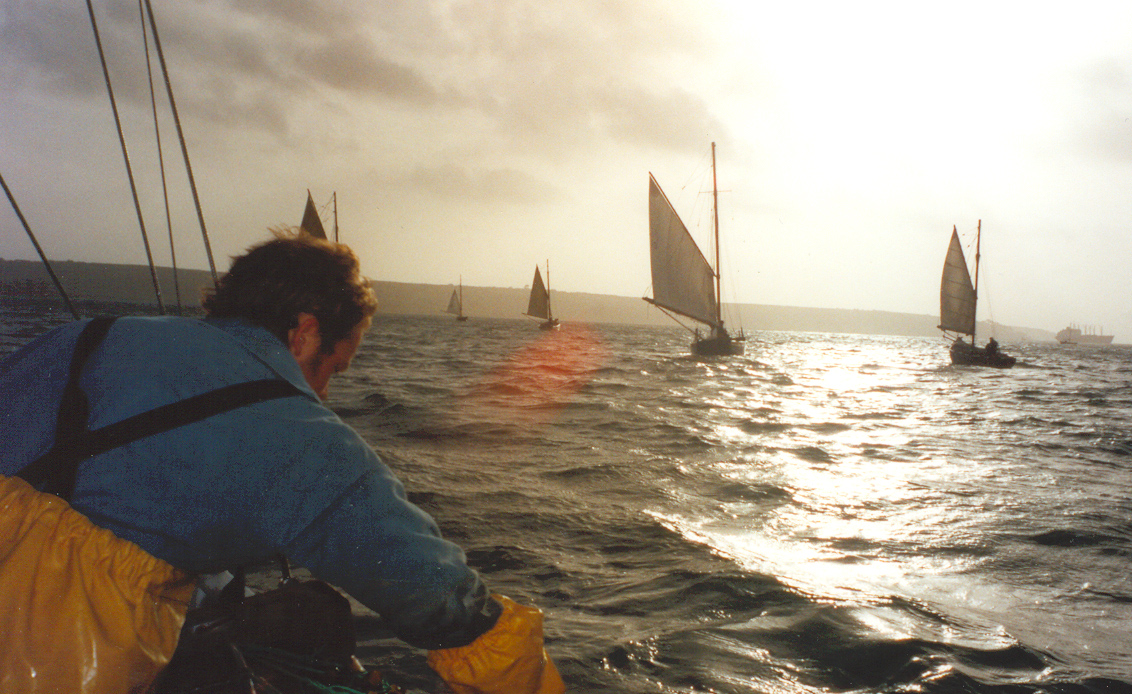

Use Cornwall Good Seafood Guide to make informed choices and only buy seafood from our recommended list.
Ask how it was caught and select more sustainable methods like handlining where possible.
Buy Cornish to reduce carbon footprint and food miles - avoid farmed salmon and seafood imported from overseas.
Try something different and in season.
Talk to friends and family members and encourage them to make sustainable seafood choices.
Talk to your seafood suppliers and tell them about Cornwall Good Seafood Guide – they may be interested in joining our supporter’s scheme.
Consider making a donation to support our work, we are very greatful for any support.

Fishing for many species in the UK is currently poorly managed and as a result many fish stocks are in trouble and our marine environment is in decline. Destructive fishing activity still impacts sensitive species and habitats in our designated Marine Protected Areas (MPAs), marine mammals such as dolphins are still caught as bycatch in large numbers in fishing nets. The simple solution is bold and more effective management. This is essential for the long-term benefit of both fishers and wildlife.
Coastal communities, whose identity and economy often relies heavily on fishing, have the most to lose from poorly managed fisheries. Well-managed sustainable fisheries can provide food security and income for generations to come and will result in a far healthier natural ecosystem which, as well as providing seafood, is able to provide the vital ecological services we all depend on, including storing carbon, providing us with climate stability and the very oxygen we all breathe.
Fishers who have invested in fishing licences, boats, gear, and fuel and are faced with the same high living costs as all of us, need to maximise their profits and have little incentive to limit their catches, often resulting in increased fishing pressure and eventually overfishing. This has been exacerbated by technological advances that have made fishing vastly more efficient in recent decades. This overfishing not only impacts the fish stocks themselves, but also upsets the balance of the wider ecosystem.
Overfishing can be avoided by limiting the number of fish caught. Catch limits (also known as quota) are one of the best ways to achieve this. Limits need to be based on sound science and should ensure that the catches are limited to safe levels, so the amount of fish removed is never so high that fish populations decline, and ideally are low enough to allow fish populations to grow, so eventually quotas are then able to be increased. There are many methods of limiting fishing and for all methods there are technical and practical pros and cons. The cost of management can be high, but the cost of unmanaged fishing is far higher due to loss of future landings and damage to our essential marine habitats and ecosystems. Well thought out management needs to be developed though consultation with fishers and fisheries scientists. A good system makes it fairer on fishers, it is essential not to create a system that allows trading of fishing rights leading to large companies dominating the catching sector. Fishing rights should be the property of the government and non-tradable.
In addition to quotas, we need to ensure the capture method does not impact other species or the wider marine environment. Some methods, such as bottom trawling, are highly destructive to the seabed and can severely impact sensitive species and habitats. Healthy fisheries rely on a healthy marine ecosystem, and it is short-sighted to think we can have sustainable, long-term fisheries without this wider consideration being at the heart of fisheries management.
Our government has created a network of Marine Protected Areas (MPAs) covering 35% of Cornwall’s coastal waters (out to 12 nautical miles) but many of these areas have little or no protection and only 7.9% of our inshore waters are protected from mobile gear such as trawling and dredging. We urgently need improved spatial management to limit the damage caused by mobile gear and to allow the seabed, fish, and shellfish stocks to recover. Only then can we have a sustainable fishery for the long term.
Following Brexit and our withdrawal from the EU Common Fisheries Policy, the UK had the unique opportunity to remedy the way we manage our fisheries. However, despite the Fisheries Act, which was passed in 2020, stating an ambition of being world leading and bringing in gold standard fisheries management principles, this has not yet come to fruition. The proposed fisheries management plans that are in development are worryingly unambitious and are likely to result in truly little positive change for our fish stocks or the protection of the wider marine environment.
Evidence shows that fisheries can bounce back when fishing effort is limited, for example in Atlantic bluefin tuna. Since quotas were cut in the early 2000s the population of bluefin tuna has successfully rebuilt. We have been lucky to see numbers increasing off our coasts in recent years. But a new trial fishery has opened this year, and we must make sure that we learn from past mistakes and ensure this fishery is carefully monitored and managed to avoid another stock collapse.
Hake is another example where positive management has had positive impacts on the fishery. The EU hake recovery plan in 2004 has allowed stocks of this alternative to cod to bounce back, and fishing is currently good. Our oceans have the potential to recover, if given the time and space. With strong, proactive, connected management, we could see our fisheries and our wildlife once again thriving in Cornish seas.
The most valuable fish species in terms of landings in the SW of England is cuttlefish, targeted by trawlers while they overwinter in deep water before they can reproduce. This is a non-quota species, so there are no limits on the amount caught. Consequently, overfishing is almost inevitable resulting in a collapse of this valuable stock but could easily be avoided if catch limits or spatial management are introduced.

Even the most sustainable fishing methods, such as potting for crab and lobster can be unsustainable if effort is too high. Following decades of no limits on the number of pots being used or on the quantity of landings, catches of brown crab are now declining in Cornish waters, and fishers are having to fish more, working harder than ever to make a living. Sensible limitations of this fishery would quicky result in an increase in populations of crabs and lobsters, creating a better long-term future for hundreds of local fishers.
Crawfish populations have increased in Cornish waters since 2015 thanks to good settlement of larvae brought to our waters from Brittany. Crawfish are a highly valuable and sought after species. We have already seen a collapse of crawfish fishing in UK waters in the 1970’s but, with effective management, crawfish could provide a long-term vital catch for inshore fishers, without it, however, it is likely that overfishing will occur, and we may lose this species once again. Catch and effort limits are urgently needed for this fishery.


Cornwall Good Seafood Guide is underpinned by the Marine Conservation Society (MCS) Good Fish Guide. The first UK consumer guide to sustainable seafood. For more information visit www.fishonline.org
Cornwall Good Seafood Guide is here to help us all make sustainable seafood choices. Choices that will help us keep the oceans healthy and Cornish fishers' futures safe. This website is funded by Cornwall Wildlife Trust. If you would like to make a meaningful difference to the health of our oceans, please consider making a donation to the Cornwall Wildlife Trust Ocean Emergency fund. Your donation will help safeguard these remarkable environments, ensuring that they continue to thrive for generations to come. Together, we can be stewards of the seas and champions for a healthier, more sustainable future.